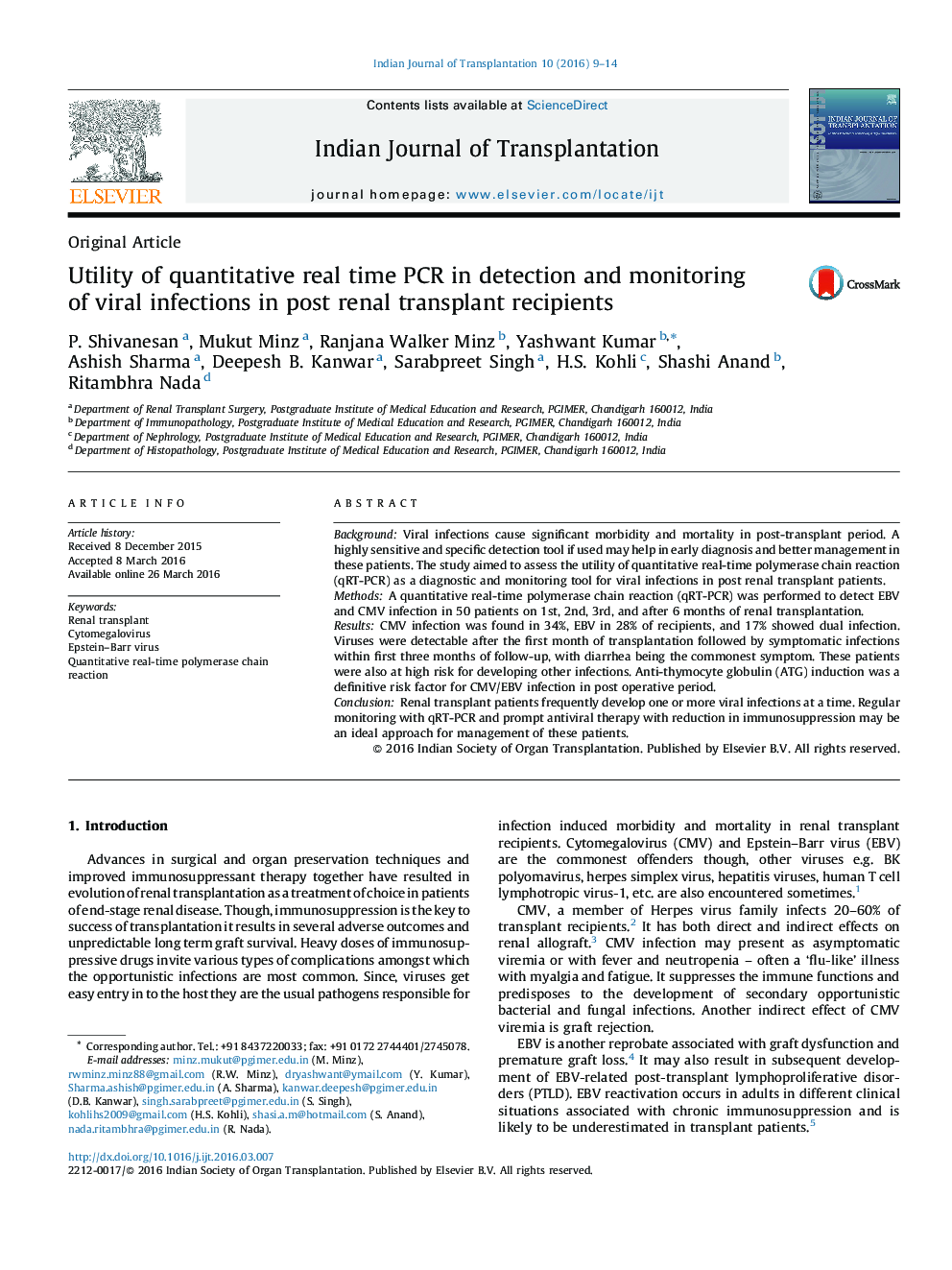| Article ID | Journal | Published Year | Pages | File Type |
|---|---|---|---|---|
| 3337833 | Indian Journal of Transplantation | 2016 | 6 Pages |
BackgroundViral infections cause significant morbidity and mortality in post-transplant period. A highly sensitive and specific detection tool if used may help in early diagnosis and better management in these patients. The study aimed to assess the utility of quantitative real-time polymerase chain reaction (qRT-PCR) as a diagnostic and monitoring tool for viral infections in post renal transplant patients.MethodsA quantitative real-time polymerase chain reaction (qRT-PCR) was performed to detect EBV and CMV infection in 50 patients on 1st, 2nd, 3rd, and after 6 months of renal transplantation.ResultsCMV infection was found in 34%, EBV in 28% of recipients, and 17% showed dual infection. Viruses were detectable after the first month of transplantation followed by symptomatic infections within first three months of follow-up, with diarrhea being the commonest symptom. These patients were also at high risk for developing other infections. Anti-thymocyte globulin (ATG) induction was a definitive risk factor for CMV/EBV infection in post operative period.ConclusionRenal transplant patients frequently develop one or more viral infections at a time. Regular monitoring with qRT-PCR and prompt antiviral therapy with reduction in immunosuppression may be an ideal approach for management of these patients.
